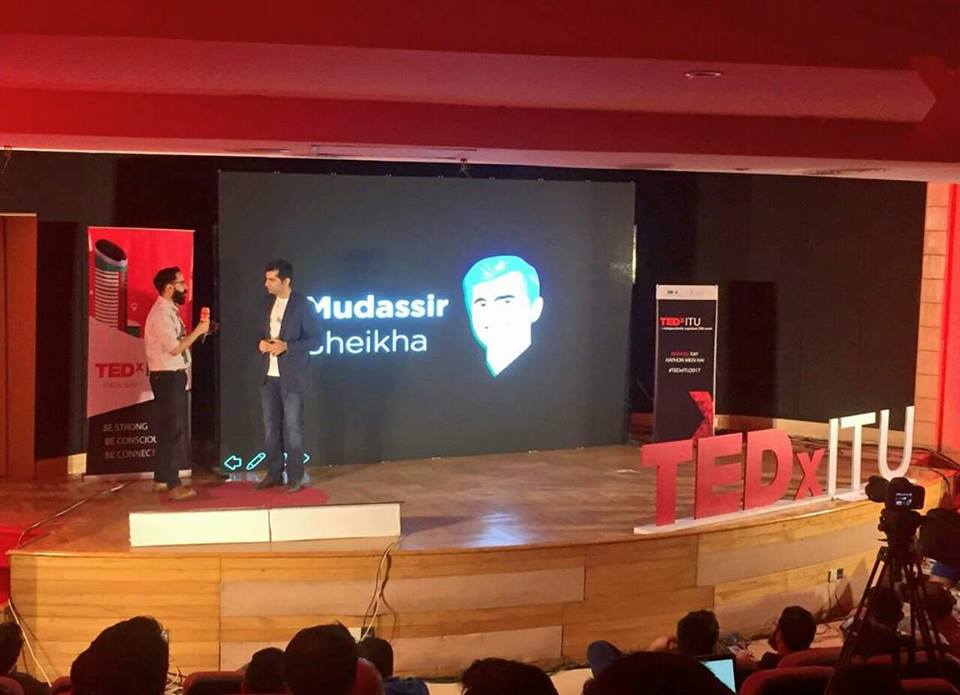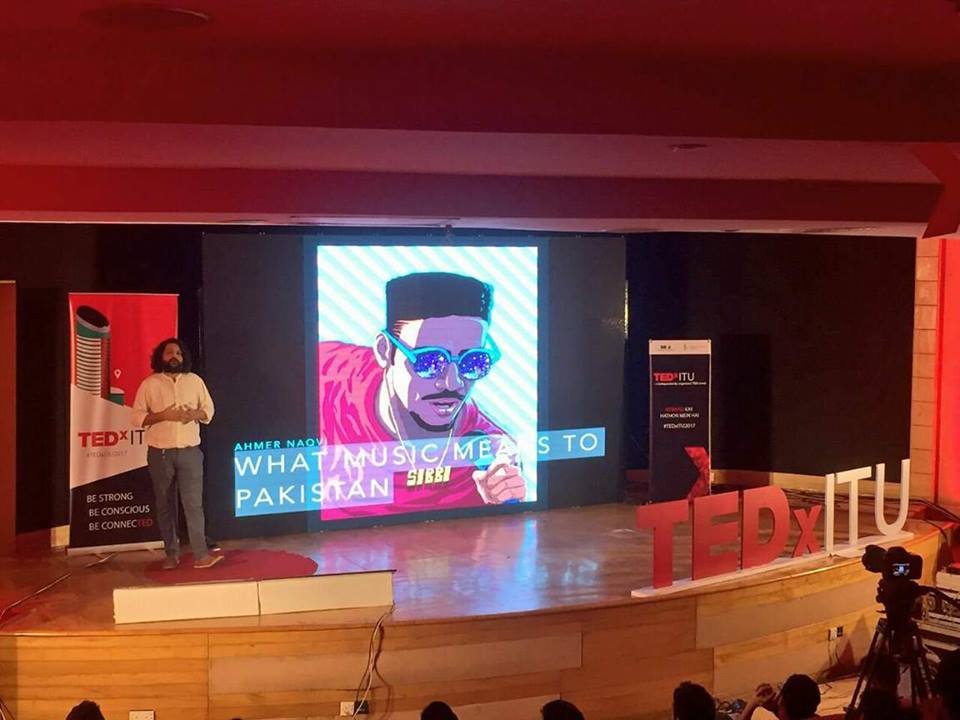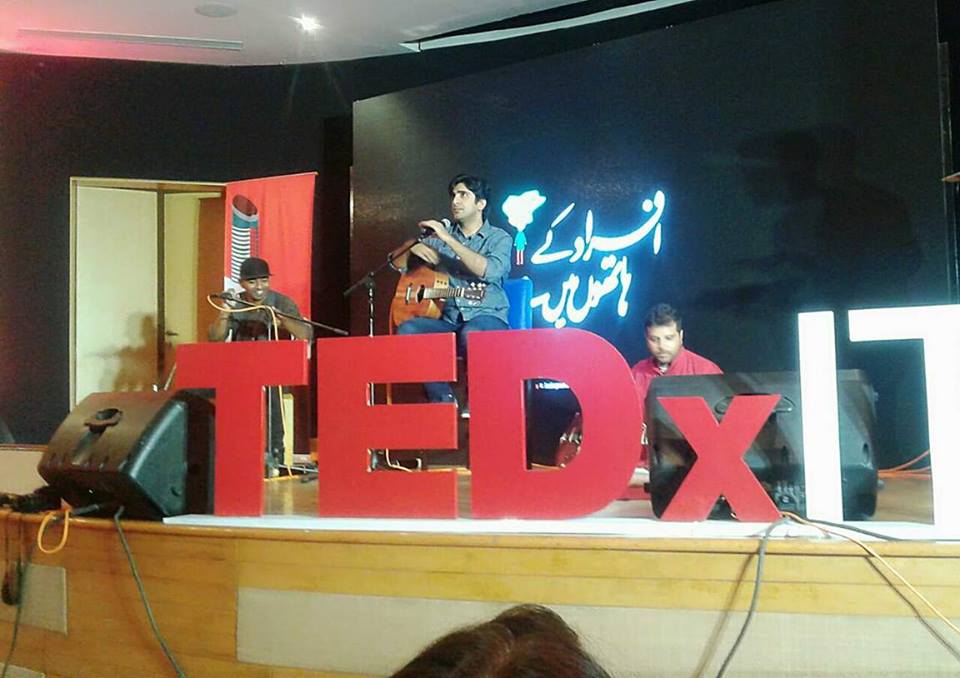TEDx ITU: Speakers reignite the spark of diversity in Pakistan

Revolving around its central theme "Afraad kay hathon main hai", TEDx ITU '17 sought to promote the
By Fuzail Zafar
Technology, Entertainment and Design maketh TED. Add to this its universal slogan “ideas are worth spreading”, TED talks continue to inspire people to share their experiences with fellow human beings by virtue of powerful story-telling.
Revolving around its central theme “Afraad kay hathon main hai”, TEDx ITU ’17 sought to promote the spirit of collectively exploring, acknowledging and mitigating societal issues, driven by individual thought and passion.
Information Technology University invited a cohort of thirteen speakers from different fields and industries, including the likes of Mudassir Shiekha, Usman Riaz, Nighat Dad, Ali Hamza, Ahmar Naqvi, Nishat Riaz, Neha Mankani, Muhammad Raza, Arshad Faruqui, Danielle Sharaf, Mariam Riaz Paracha, Abdullah Ahmad and Amina Rizwan. From TED luminary Usman Riaz s unprecedented endeavours in animation industry to Abdullah Ahmad s innovative genius, and from Mariam Paracha s poignant poems to British Council veteran Nishat Riaz s thoughts on educational conundrum, each speaker s story transmitted a trove of inspiration and motivation among the listeners.
When, before inviting the first speaker on stage, the host asked the audience what Iqbal really meant to convey through his famous verse – selected as event’s theme, which literally translated to: people are masters of their own destinies, the audience came up with fundamentally different interpretations. Some were of the view that it was all about an individual’s ability to change himself or, at best, his community; others believed that ‘afraad kay hathon main hai’ essentially insinuates at the power of solidarity and unity, which can easily be translated into positive social change. Fostering change, thus, was the common factor in these diverse interpretations.
When the goal is similar, but inputs are diverse, it goes a long way in ensuring that the future is in secure hands. The panel of honourable speakers reflected just that. From Mudassir Sheikha to Ali Hamza, each speaker belonged to a different industry or niche, but ultimately pursuing one common aim: to bring about positive yet sustainable socio-cultural and economic change in Pakistan.
Bun Kebab vs. Burger
Enters Mudassir Sheikha. The man knows he doesn’t need to introduce himself. So he talks business straight away. So he did, by explaining the philosophy behind the widespread recognition of bun kebabs in Pakistan as compared to that of burgers offered by multinational food chains.
He expounded that since bun kebab was a local product, it managed to evolve over the years keeping in consideration the local needs and preferences. On the other hand, a burger was a foreign product introduced by global companies, which logically remained unable to prioritise the needs of the Pakistani market.
“So as a local upstart, the lesson we have in the story of bun kebab is that we should work hard to understand local needs, and we need to build a bun kebab in whatever we are building”, the Careem co-founder urged the aspiring entrepreneurs.

Mudassir Sheikha speaks about understanding the local market. Photo: Fuzail Zafar
Building on the bun kebab’s success story, Sheikha then identified three characteristics that eventually enabled Careem to surpass its foreign competitor(s): understanding local needs, moving fast so as to adapt to the local preferences and building local relationships.
Mudassir ended his talk with a euphonious announcement that Careem-sponsored bun kebabs will be given-away at the session break.
Pakistan is music, music is Pakistan
Ahmar Naqvi, the Chief Operating Officer and Head of the Content Team at Patari, talked at length about what music means to Pakistan and its role in shaping up nation-wide narratives – and counter narratives, of course. By playing the song “Bara dushman bana phirta hai jo bachon se darta hai” on projector, he poignantly reminded the attendees how the state set out to build a commendable narrative against the violent extremist cult.

Ahmer Naqvi captivating the audiences with his talk on what music means for Pakistan. Photo: Fuzail Zafar
Right after this, he played lyrically different but tune-wise similar song: “Bara general bana phirta hai dollar le kay larta hai”. Before it could judder the audience in their seats, Naqvi informed that this song was produced by the Taliban to counter the state’s narrative - the same Taliban who otherwise profess the profanity attached with music, but at the same time understand the power of music as a tool for spreading ideas.
“So ultimately when we talk about music we can see that it’s the basis of our identity; it’s how we debate our ideas. It’s how we fight propaganda.
It’s how we express ourselves and how we cut across many obstacles. And so, I think it’s fair to say that Pakistan is music, and music is Pakistan,” concluded Naqvi.
Saya-e-Khuda-e-Zuljalal
Keeping with the TEDx ITU theme, Ali Hamza delineated how people – afraad – evolve through time from being locked in personal spaces to opening up to the larger society in order to share ideas, experiences and innovations, just so they could collectively usher in a positively changed social fabric.
Known as a luminary in Pakistani music, Ali Hamza, in his trademark delightful rhetoric, elaborated his point by sharing his personal experience.

Ali Hamza sharing how music brought people together. Photo: Fuzail Zafar
Music, he said, remained a very personal space for him during his adolescent years. However, when he started playing with other musicians, he realised that in order to gel as musicians, they also had to gel as human beings. And when this relationship extended further with the development of their fan-base, that same lonely experiment – music – turned into a catalyst of change for many. Noori’s songs like ‘Kedar’, ‘Meray Log’ and ‘Hum Dunya Badlengay’ bear testament to the fact that music can well be inspirational.
The event culminated with Ali Hamza, along with the audience, singing Pakistan’s national anthem. Indeed, an ideal culmination for an equally meritorious event.

